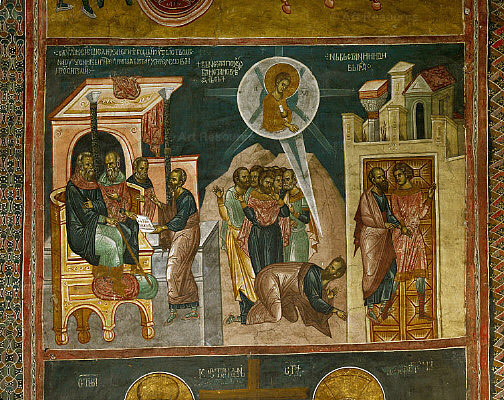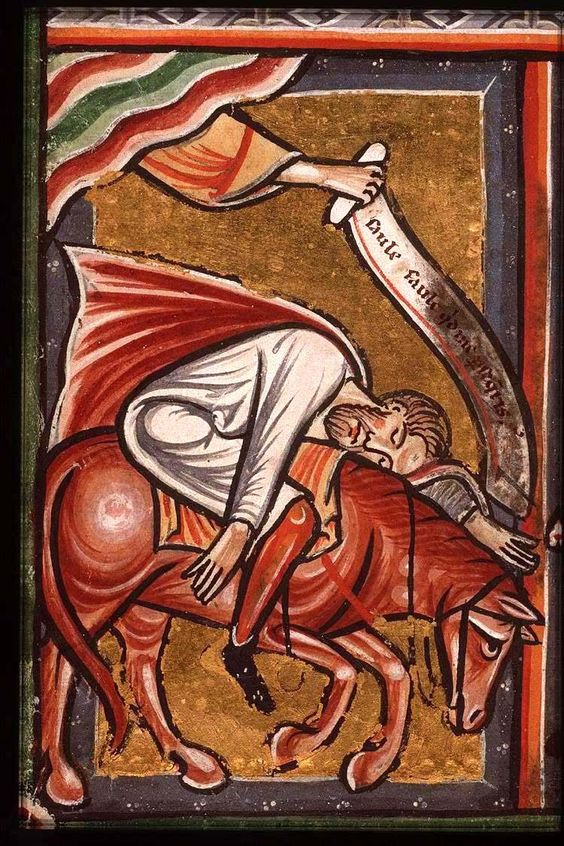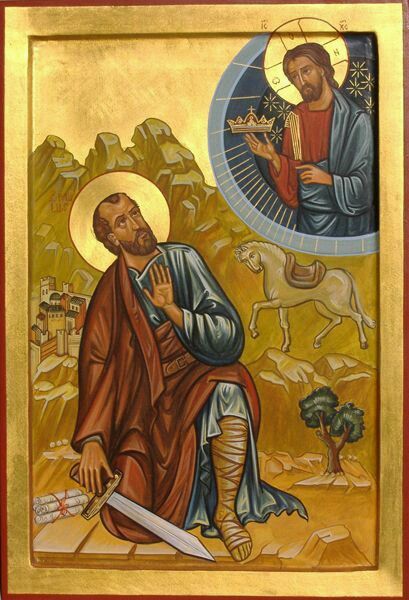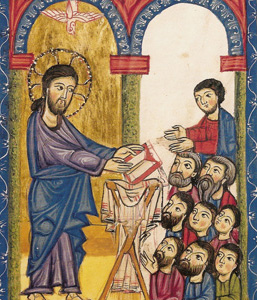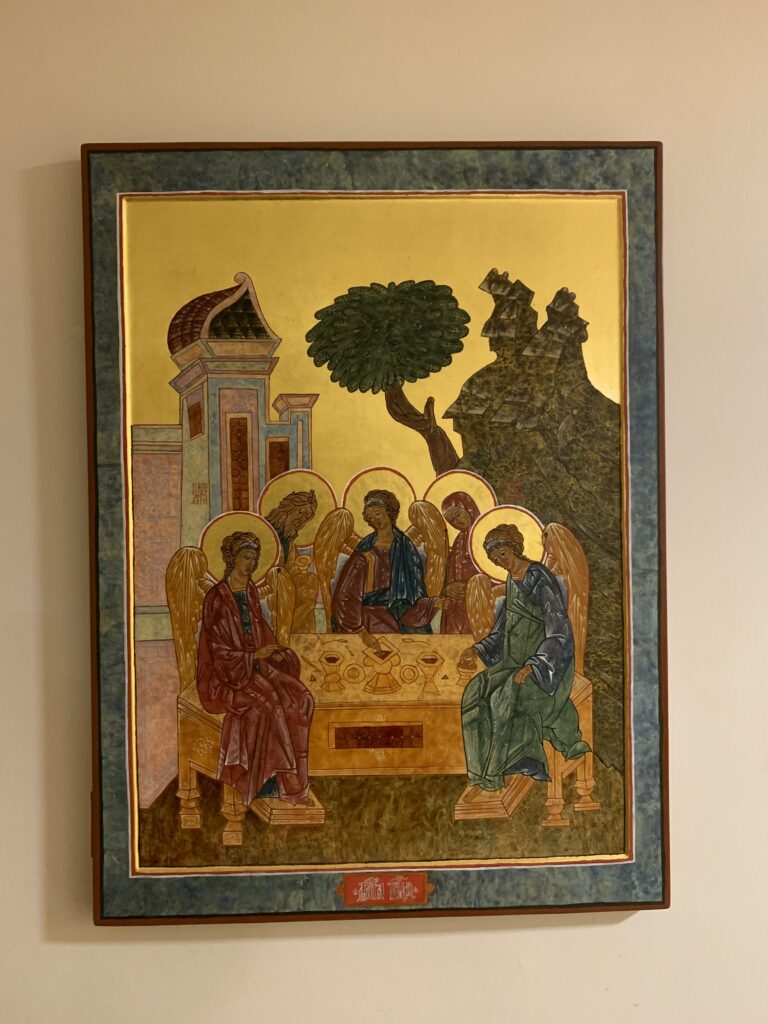On the contrary, we have renounced the deeds one hides for shame; we do not practice cunning or falsify the word of God, but through the open preaching of the truth we commend ourselves to anyone’s conscience in the sight of God…. it is the same God who said, “Let light shine out of darkness,” who has caused his light to shine in our hearts to spread the light of the knowledge of God’s glory in the face of Jesus Christ. (2 Cor. 4:2, 5-6)
St. Paul was accused by his enemies in Corinth of “cunning” financial business; i.e., they accused him of shady and dishonest business deals with church money. They also accused him of “cunning” ways to read the Bible that were also shady and dishonest. He tells them that he has not been involved in any “cunning” behavior–not with money and not with reading the Bible. His interpretation of Scripture is open and honest and available to anyone with an honest, open conscience.
St. Paul alludes to Genesis 1 (“Let there be light”) when he paraphrases the Father’s command, “Let light shine out of darkness.” He might also be paraphrasing the prophet Isaiah: “O people walking in darkness, behold a great light: you that dwell in the land and shadow of death, a light shall shine upon you.” (Is. 9:2) St. Paul is saying that the same light that overcame the darkness in the beginning of the world and at the destruction of Death has shone in his heart-mind and shines in the hearts-minds of all honest people.
The light of God that shines in St. Paul and in honest people reveals the truth of the Gospel. (Remember the light that shone on St. Paul at his conversion? It struck him blind in order to heal his heart, St. Augustine said.) People “see” the brightness of the Gospel and then personally adopt it and are transformed by it; they are transformed into the image of the glorious Christ and communicate it to others who are “illuminated.” (One ancient way to refer to baptism is to call it “illumination.” Old prayers for those about to be baptized asl God to bless “those preparing for holy illumination.”)
But our actual daily experience is not bright and glorious. We are wasting away and eventually die. Yet what is strong already manifests itself in what is weak and the future erupts into the present. The eternal breaks into the perishable and enlightens what is temporary and transient.
Knowing Christ as the true light, inaccessible to falsehood, we learn this, namely, that it is necessary for us to be illuminated by the rays of the true light. But virtues are the rays of the Sun of Justice streaming forth for our illumination, through which we lay aside the works of darkness and walk becomingly as in the day and we renounce those things which shame conceals. By doing all things in the light, we become the light itself so that it shines before others which is the unique quality of light. If we recognize Christ as sanctification, in whom every action is steadfast and pure, let us prove by our actions that we ourselves stand apart, being ourselves true sharers of his name, our deeds–not just our words–coinciding with his power of sanctification.
St. Gregory of Nyssa, On Perfection

